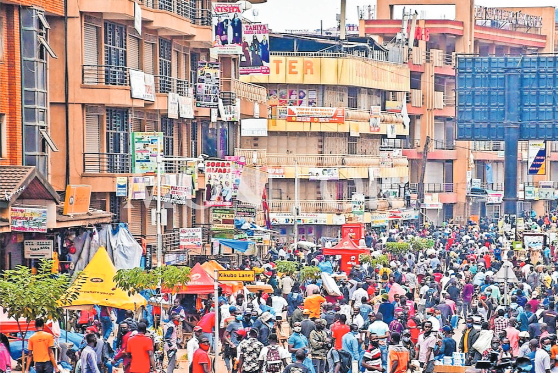Prime
Address generational threat to customary land

What you need to know:
Attempt by some current development thinkers to argue that customary land tenure can turn into free-hold land tenure system is fuelling a lot of tension over the future of customary land ownership
Dubbed Agenda 21 at Rio Summit in Brazil in 1991, the global development thinkers came up with the noble idea of sustainable development and thought of not depleting resources for future generations.
Attempt by some current development thinkers to argue that customary land tenure can turn into free-hold land tenure system is fuelling a lot of tension over the future of customary land ownership. Precisely because they are community-based, customary land tenure systems are inherently unique to the localities in which they operate; thus they are difficult to characterise by generalities.
Recently, I was in Amudat District conducting a study on communal land tenure system and its implications in the livelihoods of the population. Yes, the 1995 Constitution recognises the customary land tenure system. Indeed, more than 90 per cent of all of northern Uganda (West Nile, Acholi, Lango, Teso and Karamoja) are largely communal.
An elder in Amudat narrated to me that his father at Uganda’s Independence in 1962, had 240 acres of arable land, call it communal land, and when they became of age, the three of them (the boys) were each allotted 80 acres of land parcels by their father. Now, he in turn recently sub-divided his eighty acres to his eight sons wherein each got only 10 acres.
Now, his sons, due to pressing household conditions, have been selling the land parcels to new faces in the district. The implication is that this young generation can only sub-divide to their sons much smaller land parcels and eventually run out of the finite land resource hence compromise future generations’ use of the resource.
Currently, there are several compelling arguments around pushing communal land into the market sphere, especially as a measure of supporting access to credit. As a result, some financial institutions who recognise how hard it is to gain land titles to such communal land parcels, have started giving exceptions to their rules and permit simple written statements from clan leaders as evidence of acknowledging the legitimacy of ownership of such land parcels.
On witnessing how households from locations where more than 90 per cent of the land is communally owned and poverty levels have shot much higher than the national average of 27 per cent, according to Uganda Bureau of Statistics 2018 figures, leading personalities in society have now weighed in.
President Museveni, during the 2019 Easter weekend, while visiting families of his fallen bush war comrades in western Uganda, not only appreciated their choice not to sell off their family land, but also launched an open campaign for Ugandans to stop further sub-division of their ancestral land or better call it customary land and only uphold sharing the proceeds of the joint economic output from such land.
Accordingly, President Museveni, who is also the NRM party presidential candidate, has included this agenda in the party manifesto 2021 General Election. Some of the country’s youth have sold portions of their land and bought motorcycles with the hope of earning decent income from riding boda bdas.
Unfortunately, given the many accidents involving boda bodas, some have had their transport business grind to a halt.
While youth entrepreneurship is truly a good idea, the choice of the youth to sell off a portion of their land has become a new poverty-driving force in, especially northern Uganda, which only recently has been enjoying the return of relative peace. Should this trend of selling off communal land continue, it will be a new destabilising force, especially in northern Uganda.
Dr Pascal Odoch, visiting scholar – University of Lusaka, Zambia. [email protected]




